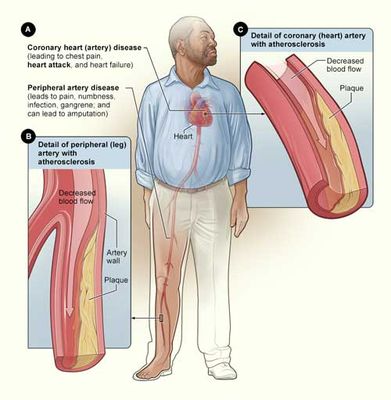Support to Reduce Smoking
Research shows that quitting or reducing tobacco use is one of the best things you can do to improve your heart health. This is also the case for secondhand smoke. Heart disease risk factors like age and family history are outside our control. However, we have the power to change our smoking habits.
We focus on getting you up-to-date information in a way that is non-judgmental and tailored to your needs. First, we will ask you to answer a short survey about your use of smoking products. If it's right for you, you can select from several treatment options to help you quit or reduce smoking.
Frequently Asked Questions

Smoking has a lot of harmful effects on the body. Most people know it can lead to lung cancer, but it is also associated with many other cancers like throat, breast, colon, and pancreatic cancer. It can increase your risk of heart disease, reduce blood flow to muscles and vessels in your legs and organs, and cause emphysema or chronic obstructive pulmonary disease (COPD). Smoking also lowers your immune system, giving you a higher risk of infections. The smoke can harm people around you and increase their risk as well.
No! Quitting smoking is probably the most important thing you can do for your heart health. However, we don't require that you quit. We just want to be a resource for you.
The US Surgeon General has said, “Smoking cessation [stopping smoking] represents the single most important step that people who smoke can take to enhance the length and quality of their lives.” Quitting is hard, but you can increase your chances of success with help.
- Nicotine Replacement Therapy (NRT): NRTs can be quite effective in helping people quit smoking, but success can vary from person to person. When used as part of a comprehensive plan that includes counseling, behavioral support groups, or prescription medications, NRTs can really help you quit for good.
- Nicotine Patch: Patches provide a steady and controlled release of nicotine through the skin. They can roughly double the chances of quitting compared to going cold turkey.
- Nicotine Gum and Lozenges: These are meant to help manage cravings by giving you a controlled dose of nicotine. They can increase the odds of quitting by about 1.5 to 2 times compared to not using any aids.
- Nasal Spray and Inhaler: These deliver nicotine more quickly and can be more effective for heavy smokers. They have been shown to increase the success rate by about 2 to 3 times.
- Combining NRTs: Some people may use more than one type of treatment at the same time, like a patch along with gum or lozenges. This can further increase the effectiveness of quitting.
NRTs are helpful tools for people who want to quit smoking or using tobacco products. Nicotine is the addictive part of a cigarette, so an NRT like a patch, lozenge, or gum is a safer way to give your body a little nicotine so it's easier to quit without the harmful stuff in cigarettes. Over time, you can gradually lower the amount of nicotine you get from NRT, so your body gets used to less and less of it. It's like training your body to not depend on nicotine anymore. This process can make it easier for you to eventually quit smoking or using tobacco altogether.
The PA Free Quitline (1-800-QUIT-NOW) is a telephone-based tobacco cessation counseling service offering free coaching, with no judgment. This program has a proven record of increasing your chances of staying smoke free for good. Learn more about the Quitline.
Smokefree.gov offers free text messaging programs that give 24/7 encouragement, advice, and tips for becoming smokefree and being healthier. Find the program that meets your needs. You can sign up or opt-out at any time by texting QUIT to 47848. Learn more about the Smokefree TXT.
E-cigarettes or vapes are generally considered to be less harmful than traditional cigarettes. Burning tobacco creates a lot of harmful chemicals that you inhale, which isn't the case with vapes/e-cigs. But that doesn't mean they are safe or healthy. Vapes/e-cigs contain other types of chemicals that can cause lung inflammation and also the addictive nicotine. More studies are happening now to understand their effect on long-term health.
No amount of smoking has ever proven to be safe, so it's best not to smoke at all.

